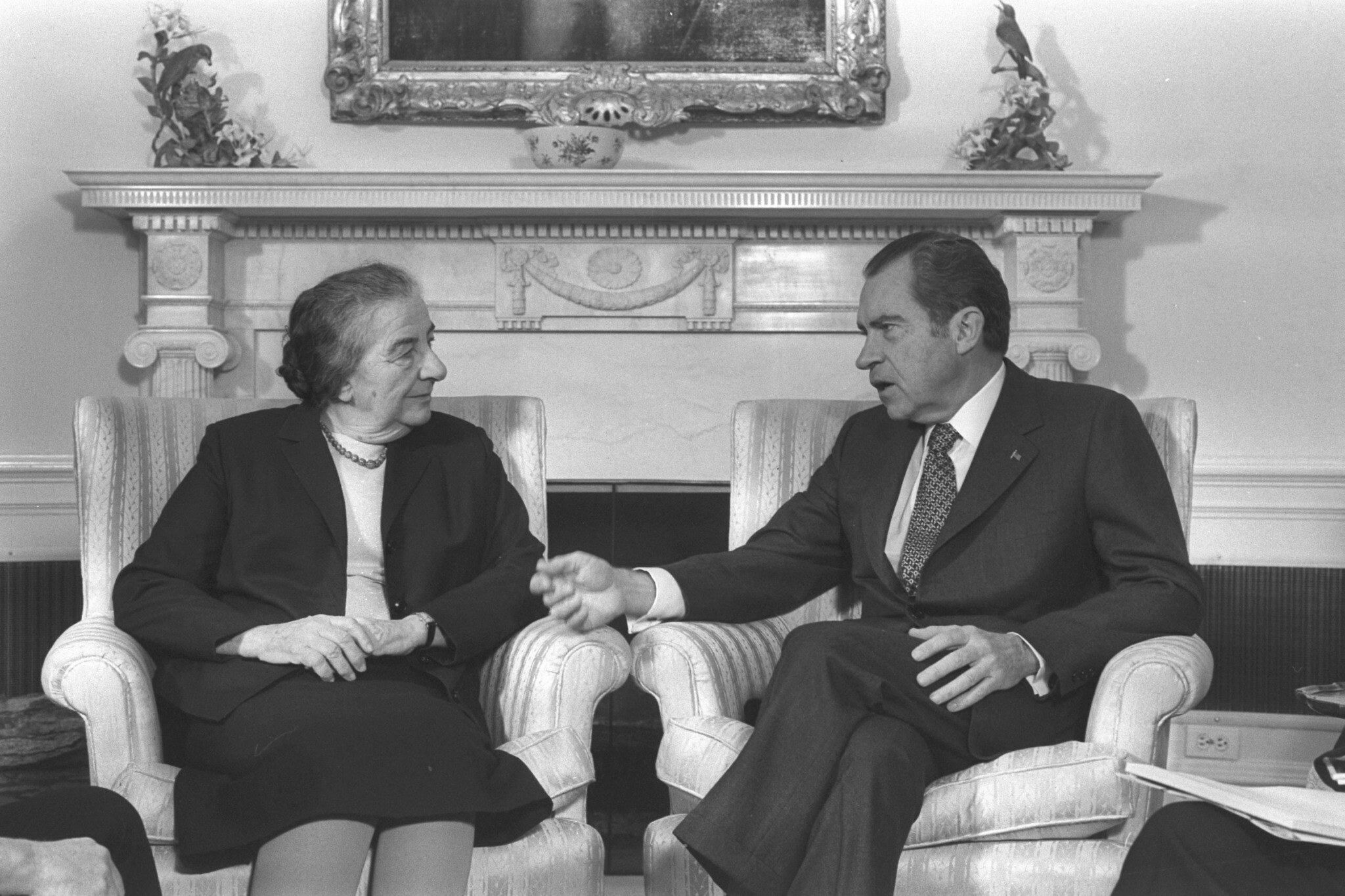
50 Years Ago Israel Was Nearly Destroyed
And it happened because Israeli leaders waited for permission from D.C. to go to war.
50 years ago, Israel came as close as it ever did to losing a war. While the Arab Islamic nations can repeatedly lose wars without paying much of a price, Israel can only lose one major war.
“Behold, He who keeps Israel Shall neither slumber nor sleep.” Psalm 121:4

That Israel survived the grim days of that October when the sirens sounded, the radios blared unit names and young men rushed from synagogues to cars and then tanks and planes on the holiest day in the Jewish calendar, had little to do with the nation’s government.
The leftists who had ruled the country without interruption until that war (and whose rule would falter a few years later and almost entirely disappear after its disastrous deal with the PLO) had failed badly. Golda Meir and Moshe Dayan, the subjects of enduring personality cults, had brought the country to the brink of destruction. It was not the political or military leaders who salvaged the situation, but young men fighting desperately and heroically in impossible battles.
The Yom Kippur War was not the first time that Israel was outnumbered or overwhelmed by vastly superior numbers of enemy soldiers and tanks, but it was the first time that the men in the field felt like they had been left on their own by generals and politicians and had no plan to win the war. And so they fought all the more desperately knowing that there would be nothing else.
On the hill of Tel Saki, 60 paratroopers and 45 tanks held off 11,000 Syrian soldiers and 900 tanks. On Petroleum Road, a 21-year-old Lieutenant Tzvika Greengold hitchhiked to a base, took command of two damaged tanks and managed to hold off hundreds of enemy tanks and destroyed at least twenty of them. Heroism held the line and turned the tide, but it did little to excuse the disastrous failures that nearly ended the lives of millions and the State of Israel.
During the Yom Kippur War, Israel had received multiple warnings that an attack was imminent. King Hussein of Jordan had personally flown in to warn Golda that war was coming.

“If we strike first we won’t get help from anybody,” Golda Meir had argued.
Had Israel struck first, it might have been able to neutralize the enemy and not only save thousands of slain soldiers, but the millions that would have been killed had Israel lost.
But Israel would not act without the approval of the Nixon administration.
Read More @ Front Page Mag HERE
